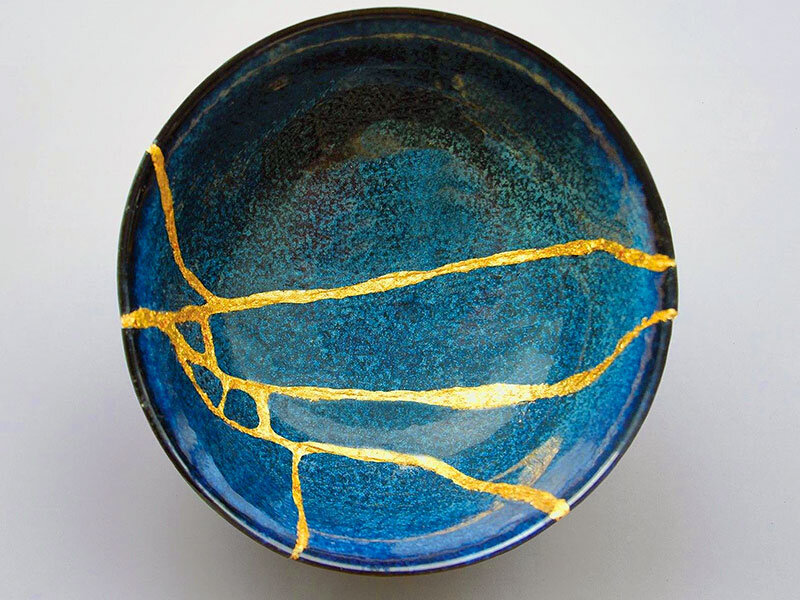
A number of years ago, I took this short, half-day mosaic course. In the course, we were shown how to glue multiple pieces of coloured glass onto a wooden slate, in a variety of suggested patterns, in order to create a beautiful piece of artwork.
We seven students sat together at the back of the store, at a cozy wooden table covered in tiny glass shards in a rainbow of different shades. It was so satisfying to pluck colours out of the pile, one by one, and arrange them, just so, into a completely new form. I still have the picture frames I made that day.
I was very drawn to mosaic building during those initial years of my illness because I felt so broken myself. My life, which had seemed full and vibrant until then, had collapsed so suddenly and completely that it took me years to adjust. I just didn’t know how to make myself whole again, either physically or psychologically. By gluing coloured pieces of glass, side by side, on a piece of wood, I felt I could somehow put all the broken pieces of myself back together again too.
At that time, all kinds of broken things began to fascinate me. Broken shells on the beach, broken and discarded plastic cups in the park, trees with their branches broken off, broken sidewalks. When I discovered Kintsugi, the Japanese practice of piecing together broken pottery with gold or silver lacquer, I felt the hand of God pointing at me. Brokenness began to seem sacred.
There’s that famous poem by Leonard Cohen:
Ring the bells that still can ring
Forget your perfect offering
There is a crack, a crack in everything
That’s how the light gets in.
Life is so fragile, and humans are such delicate creatures. Things can break in an instant. We have all lost things we can never recover, and broken things that can never be put back together again. Bodies get sick, milk spills, people mistreat you, relationships fade. The trick is learning how to be okay with all that brokenness. In being able to see the beauty behind it and within it.
I always hoped I’d find a cure for Chronic Fatigue Syndrome. I never really did. But what I did learn, was how to love myself despite my brokenness. I learned to become more present, since the present is all we really have. I learned how to sit with the inevitable pain of existence and not run away. I learned to love, fiercely, with the deep knowing that it will end. I learned how to show myself, and others, compassion.
Finally, I’ve learned that I don’t need to be fixed. I can be fragile and still have value. I can be broken and still be loved. In fact, I now see my fragility and brokenness as a strength. Unlike the selfish and brittle hardness of power, a whole lot of softness and love can come out of fragility. And by accepting my own fragility, I can teach others to love and accept theirs as well. That is truly a gift.
About the Author: Rebecca Wong has a BA in English Literature from the University of Waterloo and has been working in the herbal business since 2000. She studied at the Ontario College of Traditional Chinese Medicine under respected authorities Paul Des Rosiers and Vu Le, and graduated from the East West School of Planetary Herbology under Michael Tierra. She received training as a yoga teacher at The Branches in Kitchener/Waterloo, and therapeutic yoga teacher training from the School for Somatic Soulwork under Deniz Aydoslu. She now teaches yoga for anxiety, depression and burnout at Rebecca's Restful Yoga Studio in Toronto.